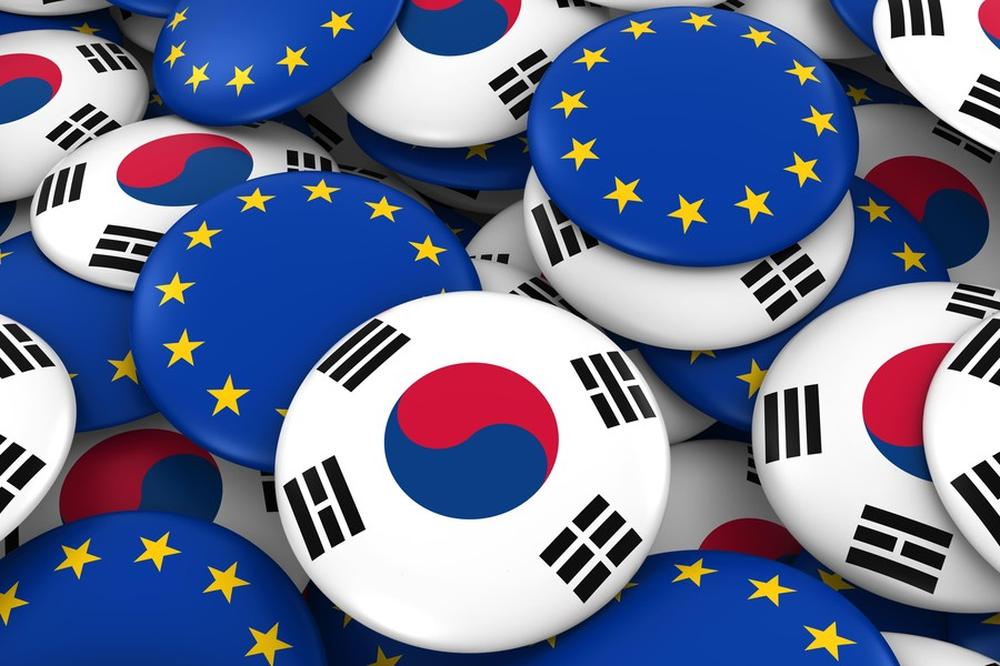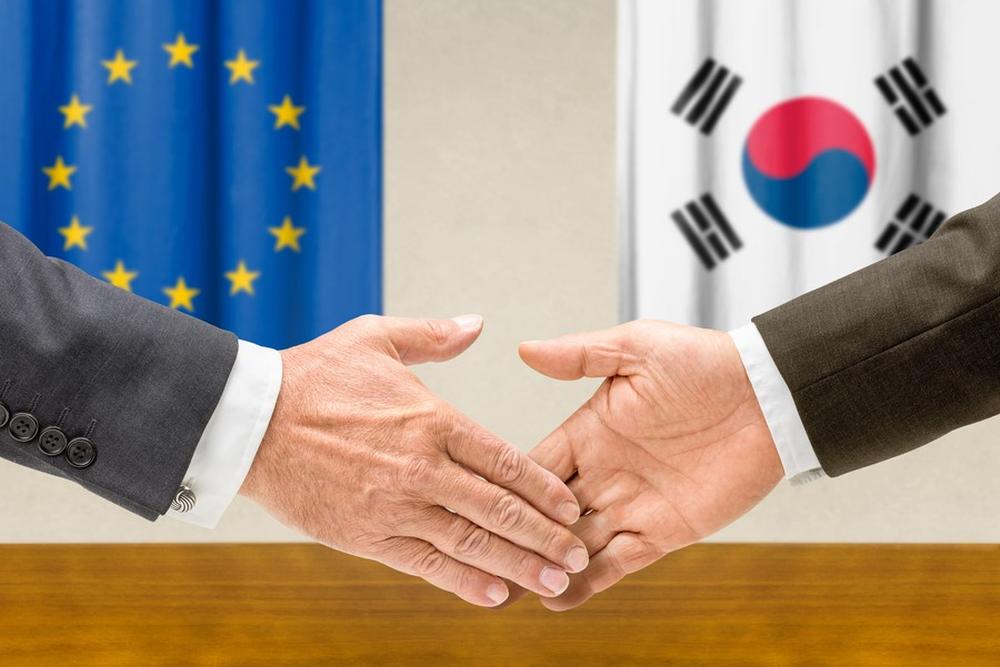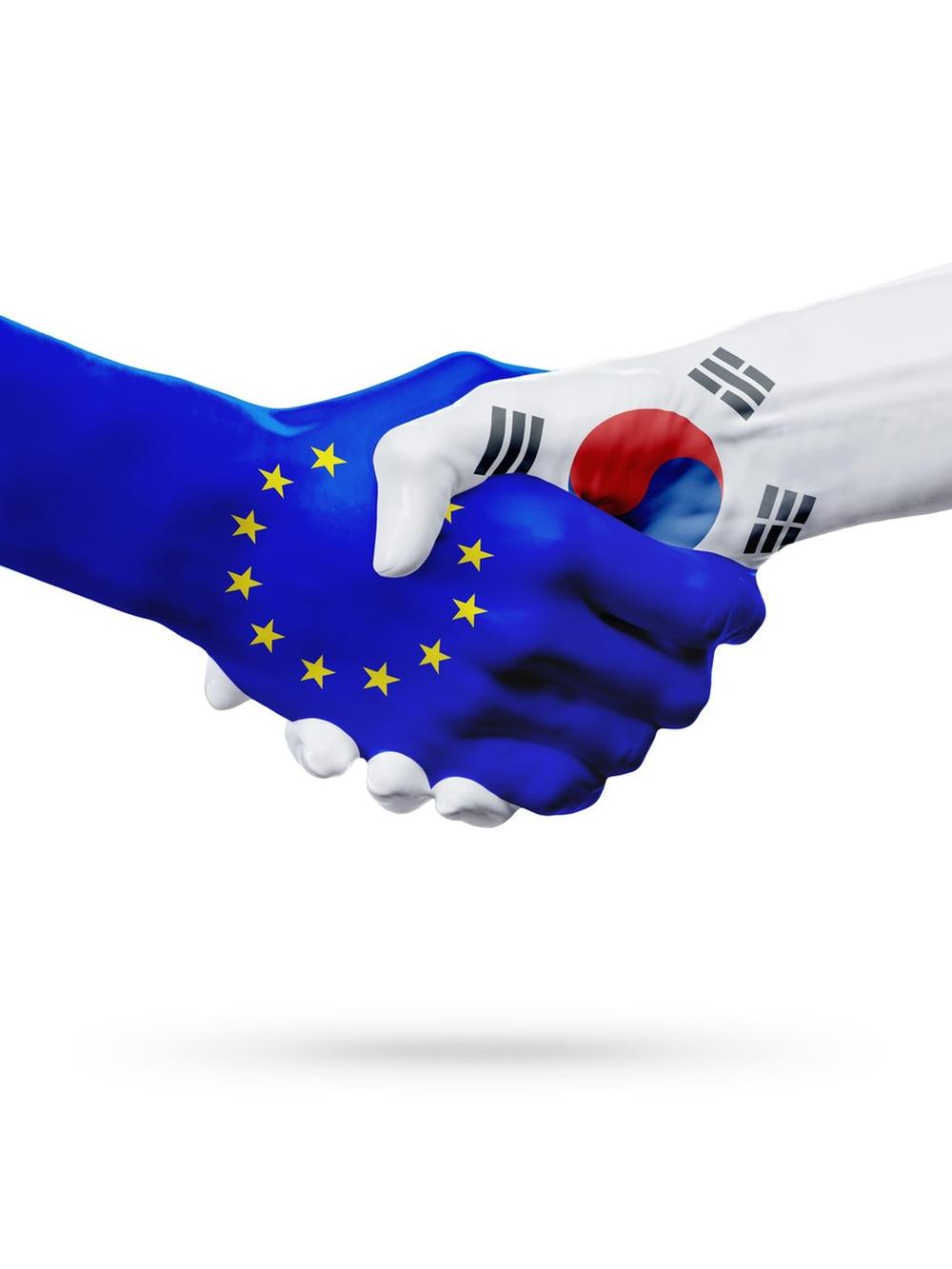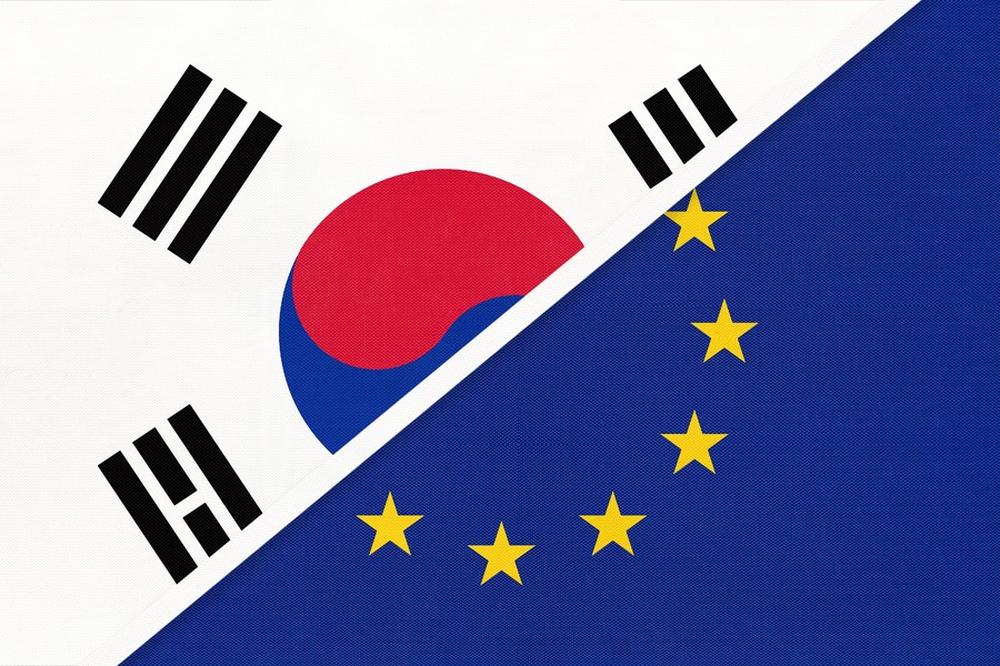- #Economy & Trade
- #Global Issues
- #Multilateral Relations

► While significant overlaps between the approaches of Seoul and Brussels towards the Indo-Pacific provide ample opportunities to increase cooperation, the ambitions of both the EU and South Korea are hampered both by external geopolitical constraints and internal limitations.
► A comparison of the South Korean and European strategies reveals substantial overlaps and compatibilities that arise from both their holistic structures and common constraints.
► In a first step, therefore, the EU and South Korea should more forcefully sync the NSP and the European strategy, e.g. by working on a “Joint Factsheet” that clearly identifies the most promising areas of cooperation and which promotes further cooperation between the EU and South Korea.
On September 16, 2021, the EU adopted its long-awaited strategy on the Indo-Pacific. With its New Southern Policy (NSP), the signature foreign policy initiative by President Moon Jae-in launched in November 2017, South Korea already has a strategy on the region in place. While significant overlaps between the approaches of Seoul and Brussels towards the Indo-Pacific provide ample opportunities to increase cooperation, the ambitions of both the EU and South Korea are hampered both by external geopolitical constraints and internal limitations.
The Indo-Pacific Strategies of the EU and South Korea: A Snapshot
The EU’s Indo-Pacific Strategy
France (2018/ 2019), Germany (2020), and the Netherlands (2020) already adopted national policy guidelines on the Indo-Pacific, and they also have been the major driving forces behind the EU’s emerging Indo-Pacific strategy. In April 2021, the Council of the EU adopted a Council conclusions on an “EU Strategy for Cooperation in the Indo-Pacific,” which was followed by a more comprehensive “Joint Communication on the Indo-Pacific” presented on September 16, 2021. The EU’s strategy aims at an increased engagement with its partners in the region to maintain a free and open Indo-Pacific and to respond to emerging dynamics that are affecting regional stability. The EU’s approach is designed to solidify and defend a rules-based international order, promote an open and fair environment for trade and investment, promote and facilitate connectivity and engage in bilateral and multilateral cooperation with partners to address a range of global issues such as climate change. In specific, the Joint Communication highlights seven priority areas for increased cooperation with its regional partners, i.e. sustainable and inclusive prosperity, green transition, ocean governance; digital governance and partnerships, connectivity, security and defense, and human security.
South Korea’s New Southern Strategy
The NSP – Seoul’s de facto strategy for the Indo-Pacific – is characterized by a renewed focus on ASEAN and India based on three pillars, i.e., people-to-people exchanges (socio-cultural cooperation), economic cooperation, and political-security cooperation. In terms of substantive policy, the NSP aims at economic diversification, diplomatic rebalancing and regional cooperation. The introduction of the NSP was an attempt to address the necessity for Seoul to reduce its economic dependence on China and avoid unilateral imperatives in the security field. The design of the NSP can be seen as a way to tackle inherent geopolitical and structural vulnerabilities and a direct response to Chinese economic coercion against South Korea, applied in the form of sanctions in 2017. Therefore, while the NSP Plus Strategy introduced by the ROK in November 2020 emphasizes seven main areas,[1] the stress on economic diversification is considered an implicit priority, as it allows Seoul to retain some room for maneuver in the foreign policy field while creating further opportunities for increasing cooperation with ASEAN.
Overlaps between the European and South Korean Indo-Pacific Strategies
A comparison of the South Korean and European strategies reveals substantial overlaps and compatibilities that arise from both their holistic structures and common constraints. For instance, both strategies
- emphasize the role of multilateralism and enhanced regional cooperation with ASEAN,
- exhibit a cautious approach to traditional security issues,
- retain a privileged interest in maritime security and non-traditional security,
- focus on more diversified economic cooperation.
Cooperation between Seoul and Brussels as well as individual EU member states on such issues as economy and trade, cybercrime, green energy, 5G, AI, and digital governance and transformation are thus most likely.
The China Factor
A major challenge for both South Korea’s and the EU’s positioning and cooperation on the Indo-Pacific remains the reaction of China. While both have emphasized that they pursue inclusive approaches to the region that also involve China as an important partner on issues such as climate change and nuclear non-proliferation, it will be difficult to convince Beijing that the very concept of a rules-based, open, and inclusive Indo-Pacific concept is not – at least in part – directed against it. Especially the EU’s Indo-Pacific strategy recognizes the challenges that the CCP poses, and the three dimensions of the EU’s China policy as also outlined in the Strategic Outlook paper of 2019 – China as a partner, a competitor and a systemic rival – will be difficult to balance. Seoul’s strategic dilemma is even greater, as it has to carefully navigate between China and the U.S., its bilateral relationship with Japan, and its relationship with North Korea. In particular, Seoul has to balance its relations to the U.S. and China – its two largest trading partners and the two major stakeholders in the question of peace and security on the Korean peninsula. The ROK’s policy is therefore to avoid overly antagonizing Beijing – and thus circumvent Chinese punitive measures.
Measures to Strengthen EU-ROK Cooperation on the Indo-Pacific
Further Sync the EU’s Indo-Pacific Strategy with the NSP
Europe is late to the game in putting out an Indo-Pacific strategy. Many regional partners have already coordinated their respective approaches to the U.S.’ FOIP strategy. While much more reluctantly, South Korea, too, has begun to coordinate its NSP with FOIP. For instance, already at the 3rd ROK-US Senior Economic Dialogue in December 2018, the two sides “discussed ways to work more closely together in implementing the New Southern Policy of the ROK and the Indo-Pacific strategy of the US.” However, the EU’s inclusive Indo-Pacific strategy provides an additional opportunity for South Korea to further sync its efforts at offsetting dependence on China with European initiatives in the Indo-Pacific. The overlaps discussed above already show a number of possibilities for gradually bolstering regional relationships beyond what is outlined in the respective strategies. In a first step, therefore, the EU and South Korea should more forcefully sync the NSP and the European strategy, e.g. by working on a “Joint Factsheet” that clearly identifies the most promising areas of cooperation and which promotes further cooperation between the EU and South Korea. As was already done with the United States, through specific Memoranda of Understanding, Seoul and Brussels could agree to coordinate regional projects in areas such as infrastructure development, digital transformation and connectivity, fair and sustainable trade, and people-to-people exchanges.
Leaving the Comfort Zone
While the goal of the EU’s Indo-Pacific strategy is the diversification and expansion of cooperation in the Indo-Pacific, Brussels seems to still disproportionally rely on long-established partners such as Japan in key areas. Here lies a particular challenge to deepening EU-South Korea cooperation on the Indo-Pacific. As the EU strives for speedy progress in pushing its proposed initiatives forward, and since its budget and human resources are limited, Brussels will most likely prioritize initiatives with established partners such as Japan, while also focusing on widening cooperation with ASEAN and its member states. As negotiations with South Korea, especially on more sensitive issues, have historically been more complicated, there is a risk that South Korea falls behind in the EU’s priority list on the Indo-Pacific. The most immediate way for the EU to really shape the order in the Indo-Pacific might be through the empowerment of a player who has not really started to play yet. This could translate, for example, into enhanced collaboration with South Korea on connectivity and urban infrastructures projects, but also on infrastructure development projects in the region. Cooperation in a strategic region such as the Mekong, where bipolar competition is intensifying, or through the EU’s project “Connecting Europe and Asia,” would offer Korean companies a reliable alternative to participation in BRI projects.
[1] They are: comprehensive health and medical cooperation, sharing Korea’s education and human resource development models, promotion of cultural exchanges, developing mutually beneficial trade relations and investment, cooperation in the development of farming and urban infrastructure, in future industries, and in non-conventional security.
Dr. Eric J. Ballback is a research fellow at the Stiftung Wissenschaft und Politik (German Institute for International and Security Affairs), focusing on foreign and security policies of North and South Korea, inter-Korean relations, multilateralism in East Asia, identity politics in Korea, and critical theories of International Relations. Before he joined SWP in October 2017, he was a post-doctoral research fellow and lecturer for the Institute of Korean Studies at the Freie Universität Berlin since April 2015, and director at Research Unit II: North Korea and International Security at the Institute of Korean Studies of Freie Universität Berlin since October 2015. He was also a research fellow and lecturer at the Insitute of Korean Studies of Freie Universität Berlin from April 2009 to March 2015.


